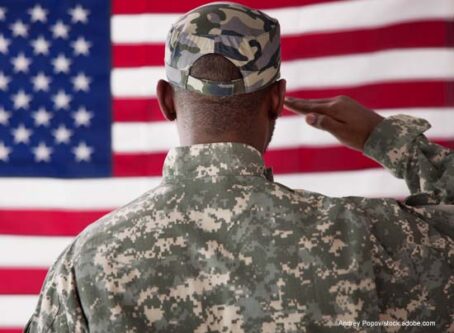Washington House committees advance truck parking, rest area access bills
Incentives at the Washington statehouse to increase truck parking options around the state and at ports are on the move. A related bill to provide assurances to professional drivers for restroom access at ports also is moving forward.
The Washington Trucking Associations and the Owner-Operator Independent Drivers Association support the legislation.
A vital need
House lawmakers voted unanimously on Feb. 9 to advance a bill to address a national safety concern for truck drivers and the motoring public.
Sponsored by Rep. Dan Griffey, R-Allyn, the bill would direct the Washington State Department of Transportation to keep state-owned and -operated rest areas open. Exceptions would be made for seasonal closures, cleaning, maintenance and repairs.
“We have a crisis in safe overnight truck parking,” Griffey told the House Transportation Committee during a recent hearing. He added that the state DOT needs to work to maintain rest areas, which he describes as a “vital part” of the network.
The truck groups say the bill should be a model for state legislatures around the country to consider.
Exacerbating the truck parking problem
Griffey says the state of Washington made the parking problem worse in the fall by closing many state-owned and operated rest areas.
WSDOT owns and operates 47 rest areas across the state. As of this month, eight rest areas are closed.
The agency reports closures at two rest areas on Interstate 5 near the Canadian border. The closures are estimated to last three months. Staffing issues are cited.
Another rest area on southbound I-5 near Everett is closed indefinitely for maintenance reasons. Also, five other rest areas across the state are closed because of winter conditions.
“The closure of state-owned safety rest areas is contrary to state policy to have zero deaths on the roadways,” Griffey wrote in the bill.
He added that to help prevent serious and fatal injuries, HB1655 would encourage the opening of safety rest areas for all drivers who need a place to stop when they are tired.
Griffey said availability to rest in designated areas is the upmost importance during the global supply chain shortages.
Rep. Davina Duerr, D-Bothell, said that truck drivers are having a tough time finding parking in Washington and throughout the nation.
“Truckers are feeling unsupported and many don’t feel their job is worth it,” she told the committee. “A lack of safe and accessible parking for truckers to rest is a big problem in Washington and across the country. Truckers are essential members of our community and help keep our economy moving by transporting goods, foods and other needs to market and our homes.
“(HB1655) is about recognizing their dignity and their right to safety. It’s also about keeping our roadways safe.”
Griffey added that truck drivers are mandated by law to park and rest.
“Quite frankly, they are finding it nearly impossible to find places to catch up on their rest cycles,” he said.
A provision was removed from the bill to allow the Washington DOT to issue short-term contracts to provide cleaning, security, or repairs to the rest areas when the department is unable to provide such services using existing employees.
Instead, language was inserted to allow the DOT to initiate a process to address the maintenance, operation and safety of its owned and operated safety rest areas.
OOIDA and WTA testimony
OOIDA Executive Vice President Lewie Pugh recently provided testimony on the bill. He told lawmakers that truck parking is in a national crisis.
“All across this country truckers every night are wasting hours trying to find a safe place to park and get their rest,” Pugh said. “We know there are lots of places, lots of communities, that don’t want trucks. They don’t like trucks, but truckers are a vital asset, along with the parking.”
Sheri Call, WTA president and CEO, said her group has “studied the issue exhaustively, and there is no disagreement there is a truck parking shortage in Washington.”
HB1655 now moves to the Senate for further consideration.
‘A big problem’
The House Finance Committee voted 16-1 to advance a related bill that is intended to reduce emissions and safety risks of inadequate commercial truck parking in the state.
Griffey said his bill addresses the “big problem” of a lack of safe and secure overnight truck parking.
“We are finding that we are not treating our truckers very well and dealing with the global supply chain shortage. Washington state’s policies are kind of getting in the way,” Griffey previously testified.
“What we are asking for in this bill … is that we give the private sector and a little bit of the public sector the ability to creatively figure out this problem so that we do not spend any of our hard-earned dollars. What the bill does is it gives a tax preference to those people that invest in overnight parking.”
Truck parking shortage
Griffey wrote in the bill that the demand for truck parking in Washington “far exceeds supply.”
“In a 2016 Washington state department of transportation survey, over 60% of truckers reported spending an hour or more per day looking for parking,” Griffey wrote. “The shortage of truck parking stifles economic growth, increases pollution, and makes our roadways less safe as fatigued drivers cannot find a safe place to park.”
He added that a workshop of the Federal Highway Administration and the Washington State Department of Transportation found that the biggest hurdles for expanding capacity are high real estate costs and community opposition.
Tax benefits offered to help
A bill analysis attached to the bill shows the average cost to construct a single parking station to range from $800,000 to $1.4 million.
Griffey’s bill, HB1657, would add capacity through tax reductions associated with expanding existing parking and developing new parking.
Specifically, all real and personal property would be exempt from property taxes at a time when there are a minimum of 10 “safe, overnight commercial truck parking spaces constructed.”
As introduced, the bill called for truck parking spaces to be a minimum of 54 feet long and 11 feet wide.
OOIDA and WTA asked for a change to set minimum dimensions for parking spaces at 70 feet long and 12 feet wide.
The change was made to the bill approved by the committee.
Truck groups testify
Pugh previously told the committee that OOIDA members identify parking as one of the problems they face daily. He added that members say they spend at least an hour each day trying to find a safe place to park.
“What we’ve been doing in the past just isn’t working. Every year there is less capacity, but there are more trucks on the road,” Pugh said. “(HB1657) is a way to allow private companies to figure out ways to add parking, and to get a tax incentive.
“We need to find better ways to build a better mouse trap. This is one of those ways.”
Call added that tuck parking is an important issue with bigger implications for the health and resiliency of the supply chain.
“It’s been validated by multiple studies. There is no disagreement that truck parking is in short supply in Washington state,” Call testified.
She said the issue of truck parking presents a simple problem for which there are few simple answers.
“There have been several potential solutions but none better or more preferred by truck drivers than parking in areas where services are provided, such as truck stops. HB1657 provides incentives for private development of truck parking spaces and presents a challenge to add new capacity where drivers prefer to park.”
Rep. Ed Orcutt, R-Kalama, shared concern with the committee about the property tax exemption provision. He is hopeful the exemption provision will be removed.
“There are some good aspects to this bill. The need is great enough to do something that we should advance this bill,” he said. “There is a great need out there for truck parking. We are hearing it from both sides of the aisle from all parts of our state.”
The bill’s next stop is the House floor.
Restroom access at marine terminals
The House Transportation Committee voted unanimously to advance a bill to give truck drivers operating at ports around the state assurances for access to restroom facilities.
Sponsored by Rep. Mike Sells, D-Everett, HB1706 would require terminal operators to provide “a sufficient number of restrooms” for use by drayage truckers in areas of the terminal that operators typically have access. Areas covered in the legislation include inside the gate and truck queuing lots.
Restrooms could include fixed bathrooms or portable toilets.
Terminal operators would be in compliance with the rule when a policy is in place to allow drayage truckers to leave their vehicles at “reasonable times and locations” for purposes of accessing restrooms.
Facilities must be in areas where access would not pose an “obvious health or safety risk” to the user.
Drayage truck operators accessing the terminal for the purpose of loading, unloading, or transporting cargo would be covered by the rule.
Rep. Dan Bronoske, D-Lakewood, told the committee the state must do a better job of serving professional drivers.
“We have a lot of very important community members and folks that work day to day to provide us everything that we need,” Bronoske said. “We have folks that unfortunately have to wait for hours upon hours upon hours unable to relieve themselves because they don’t have access to adequate restroom facilities. It’s a real shame.”
If we say we value our truck drivers, and we certainly do, the very least that we can do is to provide them with an adequate space to go ahead and use a restroom.”
A section of the bill covering restroom access for truckers at retail establishments during normal business hours was removed in committee.
The committee was told the retail establishment provision is already covered in other areas or statute.
“If there’s an existing requirement that requires retailers and ports to let truck drivers use their restrooms, it is failing miserably,” OOIDA Director of State Legislative Affairs Mike Matousek previously told Land Line Media
From hero to zero
OOIDA and the Washington Trucking Associations lament the fact the issue needed to be addressed in legislation.
“I never thought I would be testifying on why we need a regulation to allow access to a basic necessity for men and women. Unfortunately, it’s been this way for a long time,” Pugh said.
He added that the problem is not limited to ports.
“We are not asking businesses to put in new restrooms. We are just asking for the rights to use the restrooms they already have. To me, this is common sense.”
Independent truck driver and OOIDA Board member Tilden Curl of Olympia, Wash., provided written testimony to the committee.
Curl told legislators that truck drivers are not seeing real-world application of the gratitude that many claim to have for their efforts.
“Two years ago, truck drivers were elevated to hero status for continuing to supply necessary goods to our nation. During that time we had many challenges, including finding a place to eat and park,” Curl wrote. “It was very dehumanizing to work through all the challenges to get the freight to its destination and then be refused a restroom visit. It felt like going from hero to zero many times throughout the day.”
HB1706 awaits further House consideration. LL
More Land Line coverage of news from Washington.









